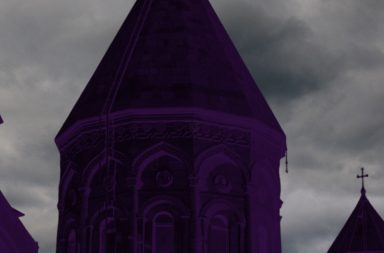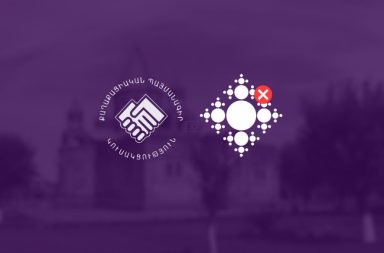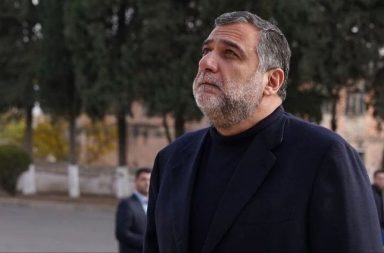by David Bishop
On October 4, the governing “Georgian Dream” party in Georgia swept the local elections across Georgia, winning 81.73% of the vote amidst bitter resentment from anti-government opposition factions. Though the Georgian Dream party would likely have easily won anyway, their percentage was magnified by the fact that several opposition factions opted to boycott the election, accusing the government of authoritarianism.
Opposition groups responded with mass demonstrations in Tbilisi, which have become a semi-permanent fixture of Georgian politics in recent years. During a rally in Tbilisi, opposition leaders read a declaration from the stage announcing the start of a “transition period.” The statement called for members of the ruling Georgian Dream party to voluntarily hand power over to the opposition.
The protests soon shifted from peaceful demonstrations to outright unrest. A group of opposition supporters tried to dismantle the fence around the presidential residence at Orbeliani Palace. After breaking through part of the barrier, they attempted to storm the grounds but were repelled by security forces.
Having boycotted the elections, the Georgian opposition is accused by the administration of opting for a forceful seizure of power, advancing their agenda via protests and unrest rather than normal electoral processes, while framing this as “peace and democracy.” Moreover, even as such efforts fail, the opposition still achieves one of its main goals: portraying the government as suppressing a “democratic uprising.” This, in turn, invites greater pressure on the Georgian authorities from European and Western institutions, which monolithically oppose the current Georgian government. This model – Western-supported protests used as instruments of pressure against sovereign governments – is familiar across the Eurasian region, including in Armenia, which has seen its own share of “color revolutions” in recent years.
Protests on Election Day
Even before the election results were announced, opposition leaders, pro-Western media, and affiliated factions had already rejected the results as illegitimate, urging supporters to take to the streets in anti-government demonstrations.
From 3 PM, columns of protesters began moving through the capital. Gathering points included the Philharmonic Hall, Tbilisi State University, and the Tbilisi Mall. Additional convoys of demonstrators arrived in the capital from outlying regions. By evening, crowds had converged on municipal buildings in the government quarter along Rustaveli Avenue and Freedom Square.
Such a scenario has become familiar in recent years: the ruling party secures electoral success, while the opposition refuses to recognize the results and mobilizes supporters to protest. This has become a repeated cycle in Georgia especially, where substantial property damage and injuries have occurred regularly since May 2024. The movement began at that time when the Kobakhidze administration passed a law requiring all non-governmental organizations (NGOs) operating in Georgia receiving at least 20% of their funding from abroad to register themselves as “agents pursuing the interests of foreign powers.” This law thus affected almost all NGOs in Georgia since, according to the NGOs’ own financial disclosures, the average Georgian NGO receives not 20%, but rather over 90% of its funding from foreign sources, almost all of which are from either the EU or US. The enactment of this law soon resulted in the formal suspension of integration dialogue between the EU and Georgia, the imposition of widespread freezes on US foreign aid to Georgia, and sanctions against Georgian officials.
Although some protesters attempted to storm the presidential palace, this escalation mainly served to give security forces legal grounds to disperse the crowd. In effect, the opposition gave the government justification to begin a wider crackdown on opposition forces, a process which would accelerate in the days immediately following the unrest.
Legal Response and Crackdown
While Georgians cast their votes, opposition factions sought to use unrest for pressure against the administration of Prime Minister Kobakhidze of the Georgian Dream party, but this would backfire with a major government crackdown on Western-sponsored opposition groups in the subsequent days.
The Georgian Prosecutor’s Office has now charged five protest leaders with committing violence, attempts to seize strategic facilities, and calls for the violent overthrow of the government. At the same time, police have detained large numbers of demonstrators involved in violent clashes that left 21 police officers injured on October 4 in Tbilisi.
Prime Minister Irakli Kobakhidze has confirmed that arrests would continue. Up to this point, over 500 people have been detained, but he emphasized that this is “only the beginning.” He also noted that security services now have “much broader identification capabilities” than during protests a year ago, when only 3% of participants were identified.
The arrest of protest organizers may be a turning point for Georgian authorities, which have been consistently moving Georgia away from its previous close partnership with the EU and other Western institutions. Rhetoric from Prime Minister Khobahidze has been vastly more hostile to the West in recent months, as Georgia accuses the West of seeking to undermine its sovereignty by sponsoring the opposition “pro-Democracy” movement. Though Georgia was until recently considered an EU candidate state, this abruptly changed with the 2024 NGO law. Now Georgia has been denounced for “democratic backsliding”, with High Representative Kaja Kallas stating Georgia is “falling into disinformation” and Commissioner Marta Kos describing “serious setbacks for Georgian Democracy”. Yet after months of EU pressure and Western attempts to influence domestic politics, Georgian authorities are signaling no compromise, as Kobakhidze has instructed Georgian diplomats to demonstratively walk out of meetings with EU officials, demanded an apology from the EU, and stated that the pro-Western and liberal protest movement would be met with “zero sympathy”.
These developments signal major changes not only for the balance of power within Georgia, but also for the geopolitical balance of the region, as a rupture between Georgia and the West could take the largest economy of the South Caucasus out of the Western orbit even as states such as France and the US expand their regional presence via influence in Armenia and Azerbaijan. The “Trump Route” infrastructure project across Armenia is a prime example of recent US foreign policy initiatives in the South Caucasus. Georgia had been indisputably the most pro-Western state in the region since the “Rose Revolution” in 2003, but now the balance of the region appears to be changing significantly as the Georgian Dream party breaks off relations with the West while the Civil Contract party expands those relations in Armenia.
Waning Protests and Public Fatigue
Despite the widely publicized initial escalation of protests surrounding the local elections on October 4, demonstrations soon declined amid rising public fatigue in Georgia from near-constant unrest. Demonstrations have continued gathering in Tbilisi every evening, but in recent days have seen their numbers sharply decline, with only the most committed protesters still participating. This has enabled pro-Kobakhidze media in Georgia to portray the demonstrators as merely marginal and radical activists, rather than a widely supported movement.
The weekend immediately following the elections highlighted this decline. On Saturday, October 11, only a handful of protesters appeared with EU flags and banners. By Sunday, numbers increased slightly, but with little enthusiasm. Relatively disorganized groups walked throughout the central streets of Tbilisi with EU flags, and some of these were foreign tourists, according to the Georgian police.
By Monday, police cordons were being dismantled in Tbilisi, suggesting that authorities no longer view opposition protests as a serious threat. After over a year of demonstrations, Georgian society appears fatigued of constant political instability, with the popularity of the opposition gradually decreasing, as seen in the Georgian Dream party’s decisive electoral victory on October 4. Many Georgians have expressed frustration with opposition leaders, associating their recycled “democracy” rhetoric with previous pro-Western Georgian administrations that ultimately were voted out.
Cultural Sovereignty
While the opposition has portrayed Georgia’s rupture with the West as a new turn towards authoritarianism, the Georgian government instead portrays this as, in the words of Kobakhidze, the reclaiming of “cultural sovereignty after decades of Western influence”.
On Monday, Kobakhidze delivered remarks openly accusing foreign institutions of creating a “pseudo-elite” in Georgia, a group “shaped by Western grants, scholarships, and cultural exchanges.” He argued that this elite serves not national interests but the political goals of foreign powers. “An artificial pseudo-elite was created, and no real concern for cultural development was shown, which created a very difficult situation in the fields of art, culture, and creativity. I want to congratulate all of you on the rebirth of our culture. You have played a special role in this. We will do everything possible to support the development of culture in Georgia and the revival of Georgian culture.”


